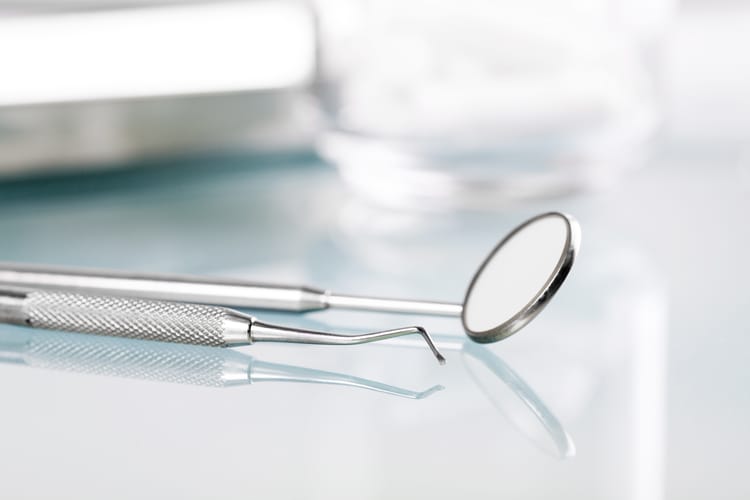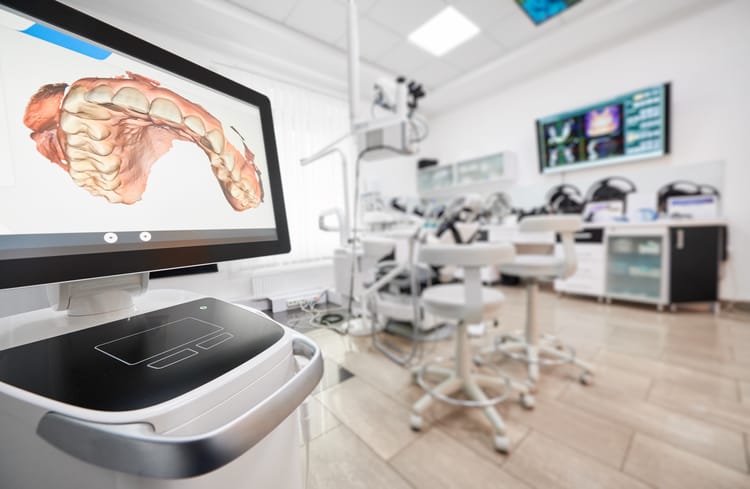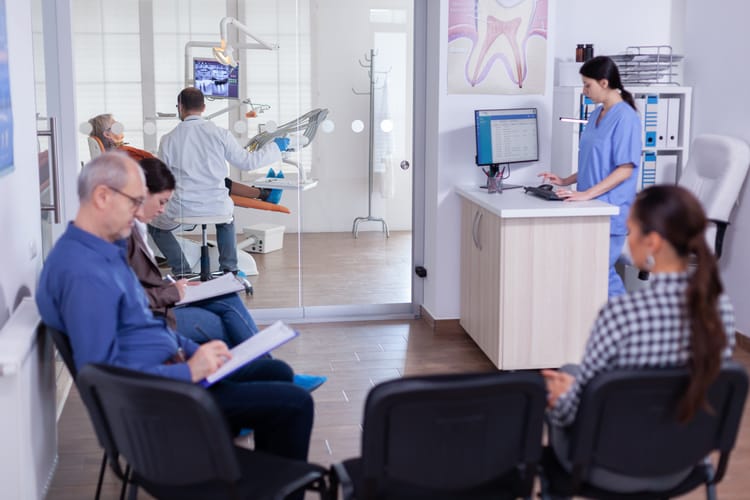'Empathy as a foundation is critical'

A version of this story first appeared in the Dental Bite newsletter. To get it in your inbox, sign up for free by clicking here.
Earlier this year, a survey found that more than half of patients lie to their dentists. Why the dishonesty? Feelings of guilt and anxiety are common among people heading to the dentist. Once in the chair, people are worried not only about their dentist's judgement but also the potential price of the care they need.
Dentists often need to have tricky conversations with their patients, but effective communication can help people overcome their concerns and get the care that they need.
Collin Bowerman, DMD, the chief dental officer at Risas Dental and Braces, spoke to Dental Bite about ways dentists and their staff can improve their patient communication skills.
A trip to the dentist can involve some sensitive issues for many people. What are some of the toughest conversations that dentists might have to navigate with their patients?
Some tough conversations can include things like delivering bad news. It can be heartbreaking for a patient to hear “You have cavities,” or “Unfortunately, we need to extract the tooth." Part of being a good provider is not only being open and honest with the patient about treatment options, but also being there for the patient when delivering the bad news. Listening to them, giving them an opportunity to let the bad news become a reality and letting them know the entire office is there to help them can make a big difference.
Discussing expensive treatment plans is also a challenge. Getting to a healthy and beautiful smile can sometimes be very costly. Sometimes patients can't afford the ideal treatment. Showing compassion and flexibility can mean the world to the patient.
And there's always managing expectations. Unfortunately, it does happen where expectations are not met with the patient and this can be very tough for everyone involved. There are limitations sometimes that can impact the outcome (finances, clinical limitations, etc.) and even the best dentist can only do so much in certain scenarios.
How can dentists develop their communication skills to address some of these issues?
Using empathy as a foundation is critical to successful communication with patients. When a provider asks open-ended questions and uses reflective listening skills, the patient is able to feel more comfortable and it becomes much easier to solve the issues at hand. Attending trainings, watching YouTube, reading communication books such as "To Sell is Human" all are great options for improving communication skills.
Practice staff members can play an important role in patient communication. How can dentists train their staff to handle tricky conversations around dental hygiene habits, treatment planning and cost?
One of my personal favorite trainings involves role playing communication scenarios with the team. These exercises often require teammates to step outside of their comfort zones, while providing a safe environment to practice and receive feedback.
What is the value in focusing on patient communication and relationship-building? Why should practices be thinking about ways to improve?
There is a saying that goes something like “You can be the best dentist in the world, but if you are a jerk chairside, you won’t succeed." Doing quality dentistry is extremely important and having exceptional chairside connections with patients is critical. The more we can connect with our patients, the more it helps everyone accomplish the unified goal of delivering healthy and happy smiles!
Edited for clarity and brevity.
Don't be a stranger.
💠 Reply to this email to connect with our team.
💠 Forward Dental Bite to your colleagues.



